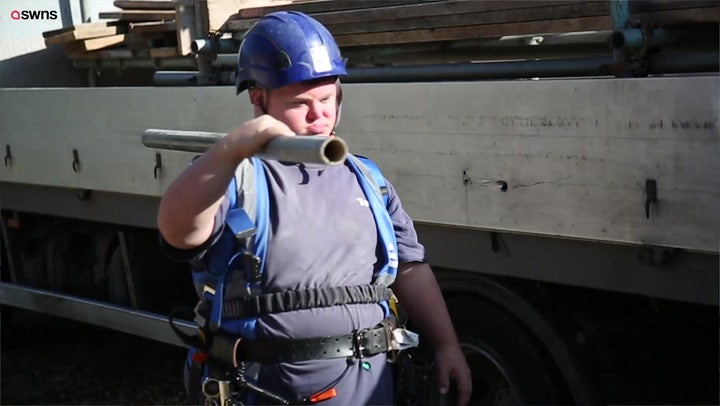The government is in no position to advise employers about hiring disabled people
The Department for Work and Pensions has produced a how-to guide for businesses looking to employ more disabled people – which, given its own questionable record on such matters, is a bit rich, says James Moore


As a disabled person of working age, it is hard to imagine an organisation less likely than the Department for Work & Pensions (DWP) to produce a guide on how to be an awesome employer of those of us with pesky bodies that do things a bit differently. It’s like the Brazilian government inviting an illegal logging company to advise on how to conserve the rainforest.
It isn’t just that the DWP behaves badly towards those claiming disability benefits that it can feel like a sledgehammer is aimed at our skulls. The government’s own performance statistics don’t make for happy reading, either. Fun fact: 70 per cent of appeals against its decisions on personal independence payments (PIP) are won by the appellant.
No, its record as an employer is, shall we say, less than exemplary. Actually, that’s soft-soaping it. “Bloody awful” might be a better way to characterise it.
In 2020, the BBC’s Panorama programme found that, since 2016, the DWP had “lost more employment tribunals for disability discrimination than any other employer in Britain”.
The department pronounced itself “shocked”. And yet, just a year later, the Disability News Service reported that the number of losses had increased. They are still racking up now.
Now, it is true that the DWP called in the Chartered Institute for Personnel & Development (CIPD), the professional body for HR people, to help with its guide, and it consulted with various other bodies. But you do have to wonder whether the CIPD’s assistance was well directed.
The DWP’s downloadable guide, Disability Confident, is billed as being “for managers helping them recruit, retain, and foster the progression of disabled people”. But who really requires guidance here? The private sector (the guide talks a lot about buisness) – or the DWP and the public sector, which the government is ultimately responsible for and has control over, more generally? If we’re going to put the DWP on the naughty step, it’s unlikely to be alone.
Unison is the UK’s biggest public sector union with 1.3m members. When it surveyed those among them with disabilities, the results did not make for happy reading. A third (34 per cent) of respondents who told their employer they were disabled said the employer wasn’t supportive of them. Of those who requested “reasonable adjustments”, which the guide mentions a lot, two thirds (67 per cent) had some or all of their suggestions refused. Nearly a quarter (23 per cent) of those who required adjustments had waited a year or more to receive them. The same number said they did not have equal access to training, and nearly a third (32 per cent) said they did not have equal access to promotion.
While this exercise was conducted some time ago, in 2019, I doubt even the most credulous of government supporters would seek to claim that we have since seen a revolution in public sector attitudes towards disabled staff.
But given the aggressive push to get more disabled people into employment – potentially including those too sick and disabled to be able to do much in the way of work – I think a repeat exercise would be invaluable. Perhaps this is something general secretary Christina McAnea could set into motion?
Getting work can be hard if you have a disability. According to Scope, the charity, the disability employment gap measuring the difference between the employment rate of disabled people compared to that of non-disabled people, is 29 per cent. Disabled people are almost twice as likely to be unemployed as non-disabled people, and three times as likely to be economically inactive. This is despite Britain’s low overall rate of unemployment, and businesses constantly complaining that they can’t find the personnel they need. Too many employers/recruitment consultants see the disability, not the person. So, no, I’m not necessarily objecting to the DWP trying to change that.
My personal view on how to improve matters boils down to a couple of principles:
• Make clear to the people doing the hiring that you want people with disabilities interviewed, and that you want suitable candidates to be hired.
• Ask your newly minted employee what adjustments they need to work effectively.
• Behave like a good employer/human being. A vast swathe of discrimination could be eliminated through the application of a very simple principle: don’t be a jerk.
Why hasn’t the DWP followed these bullet points? What efforts is it making?
One way the department could (slightly) lower the disability employment gap would be for it to hire some disabled people with HR experience to help it improve its record. If its minister and mandarins would care to read its own guide along the way, knock yourselves out.






Join our commenting forum
Join thought-provoking conversations, follow other Independent readers and see their replies
Comments